Our Members Asked:
Do any supplements help with COVID-19? Do supplements like vitamin D, zinc, vitamin C, or herbals work?
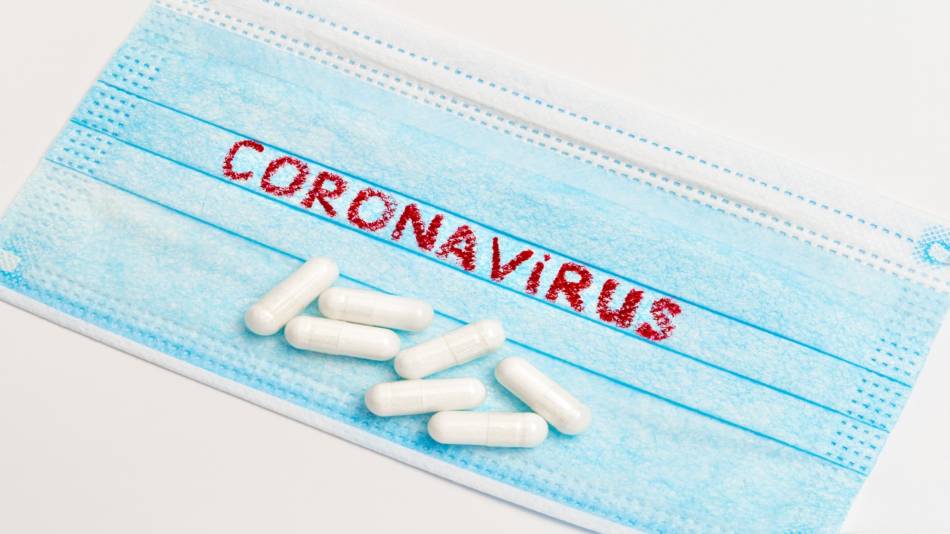
Answer:
Many supplements and natural or other alternative treatments are being promoted to prevent or treat coronavirus (COVID-19). None have been proven to work, but some have potential benefit. Here's what you need to know, and we've grouped these approaches in the following categories:
Vitamin and minerals that may help with COVID-19 if you're not getting enough
Supplements that may help reduce symptoms of COVID-19
Supplements and products unlikely to help with COVID-19
Supplements and products unlikely to help with COVID-19 and could be dangerous
If you are planning to try any of these supplements, be aware that ConsumerLab has tested and reviewed many of these products and it may be worthwhile to check ConsumerLab's Top Picks in each category — based on best quality, appropriateness of strength and dosing, and value -- using the links provided below.
Of course, the most important thing you can do to avoid infection with coronavirus is to prevent exposure by following the latest recommendations of the CDC and World Health Organization regarding social distancing, wearing a mask when needed, and other precautions. In addition, strongly consider getting the COVID-19 vaccine when it becomes available to you after talking with your doctor — current data shows it can help protect you (see our Answer for more details).
Getting adequate sleep and exercise and eating a healthful diet that includes adequate (but not excessive) intakes of essential nutrients, such as vitamins C and D, as described below, are also important for staying healthy. Take steps to control hypertension and blood sugar fluctuations with diabetes, as these conditions are associated with more severe disease if infected. This may also help you maintain a healthy weight, which is important because obesity has been associated with an increased risk of requiring intubation or dying among people hospitalized with COVID-19, particularly those under 65 years of age. Risk was 60% greater among those with severe obesity (BMI > 34.9 kg/m2) compared to patients of normal weight (BMI of 18.5 to 24.9 kg/m2) (Anderson, Annals Int Med 2020).
Use of some supplements has been associated with modest reductions in the risk of SARS-CoV-2 infection, but no supplement is known to have the efficacy exhibited by currently authorized vaccines. The largest observational study on self-reported dietary supplement use and SARS-CoV-2 infection found that, among 372,720 people in the U.K. who were tested for SARS-CoV-2, those who used probiotics, fish oil, multivitamins, or vitamin D had a 14%, 12%, 13%, or 9% lower risk of infection, respectively, compared to those who did not (Note: The species and strain of probiotics used was unknown, and the effect of probiotics may have been confounded by healthy dieting). Similar findings were observed among 45,757 people in the U.S. and 27,373 people in Sweden, although only in the U.K. were the reductions driven by benefits only among women. In addition, data from nearly one million people who were not tested for SARS-CoV-2 found that use of these supplements was associated with a small (about 5% or less) reduction in the risk of anosmia (loss of taste and smell), a common symptom of COVID-19. There was no association between zinc, vitamin C or garlic supplementation and COVID-19 risk (Louca, BMJ Nutr Prev Health 2021). While interesting, these results cannot not be taken as proving cause-and-effect.
For people who have had COVID-19 and experience a loss of smell (a common symptom) lasting for longer than two weeks, taking omega-3 fatty acids in addition to standard treatments may be helpful, according to an expert panel of ear, nose and throat physicians in the United Kingdom. The panel did not find sufficient evidence for taking vitamin A drops or alpha lipoic acid to treat persistent loss of smell (Hopkins, Clin Otolaryngol 2020).
Olfactory retraining (smelling several intense odors, such eucalyptus or clove essential oils, twice daily for several weeks to months) has been shown to increase sense of smell in some people with loss of smell after other types of viral infections (Hummel, Laryngoscope 2009; Liu, Laryngoscope 2020). This has been proposed as a treatment for people with loss of smell after COVID-19 (Whitcroft, JAMA 2020). A study in Turkey among people who had moderate to complete loss of smell due to COVID-19 found that sniffing Turkish coffee (a strong, unfiltered coffee) helped some of the participants temporarily regain some of their sense of smell. In fact, 13.3% of participants reported being able to smell normally for up to an hour after sniffing coffee, and the percentage of patients with severe symptoms decreased from 58.3% to only 6.7%. However, there was no decrease in the percentage of participants who had complete loss of smell (Bulbuloglu, Ideggyogy Sz 2021)..
Vitamin and minerals that may help with COVID-19 if you're not getting enough
Vitamin D
Preliminary studies suggest that people with lower levels of vitamin D are more likely to test positive for the coronavirus, have more severe symptoms, and may have a higher risk of dying from COVID-19. Vitamin D supplementation might have some benefit for preventing or possibly treating COVID-19, particularly among people who are unvaccinated and deficient in vitamin D. However, vitamin D supplementation may not have benefit among people who are vaccinated (even if they have low blood levels of vitamin D) or people with adequate blood levels of vitamin D. Be aware that high blood levels may also increase the risk of death from COVID. (See the COVID-19 section of the Vitamin D Supplements Review for details.)
You can maintain an adequate blood level of vitamin D (20 to 30 ng/mL — although best not to exceed 39 ng/mL) by getting proper sun exposure (at least three times a week for about 30 minutes exposing your hands, arms, legs, and face), consuming vitamin D-fortified products (such as most milks, certain other dairy foods and some plant-based milks), or taking a vitamin D supplement is a good, safe, preventative measure for protecting against respiratory infections in general. To maintain healthy levels, only 400 to 800 IU (15 to 20 mcg) of vitamin D is required daily, but, to boost low levels, higher doses, such as 2,000 IU daily, are used and are generally safe. Very large doses, which have been taken periodically (such as 100,000 IU taken monthly), may not be as helpful and could even increase the risk of respiratory infections in some people.
A small study among older men and women in Singapore with COVID-19 found that those who were started on a combination of vitamin D, magnesium and vitamin B12 supplements within one day of hospitalization were much less likely to require oxygen therapy and other intensive care support than those not given the supplements.
Vitamin D supplements, taken daily in moderate doses, may also help to reduce the risk of respiratory infections and viruses such as influenza A in children and adults who are deficient (< 20 ng/mL) or severely deficient (< 10 ng/mL) in vitamin D, although not all research agrees.
There are many vitamin D supplements on the market. ConsumerLab has tested a wide variety and has published its Top Picks in its Vitamin D Supplements Review, which contains additional information about using vitamin D, as well as its benefits, dosing, and potential side effects.
Zinc (and Selenium) Pills and Liquids
A study in Spain among people hospitalized with COVID-19 found that having very low blood levels of zinc was associated with more severe disease and higher mortality rates. However, two clinical studies found no benefit from giving high-dose zinc (40 to 50 mg daily) to patients with COVID-19. Also, be aware that episodes of hypoglycemia have been reported in people taking 50 mg or more per day of zinc from supplements to help treat or improve recovery from COVID.
Supplementing with zinc (such as with regular tablets) would not benefit most people unless they are deficient in zinc, which is more common in elderly people due to reduced zinc absorption. In such people, supplementing with zinc (e.g. 20 mg per day) may improve the chance of avoiding respiratory tract infection, as suggested by a study of elderly people in nursing facilities in France. (People in that study were also deficient in selenium -- which is uncommon in the U.S. -- and were given 100 mcg per day, which is about twice the daily requirement. There is also some evidence, from a study in Germany, that selenium deficiency is common in people with COVID-19 and more common among those who die from the disease than among those who recover). Others who may be low in zinc include vegetarians and people taking certain medications, such as those that reduce stomach acid and ACE inhibitors, on a long-term basis. The daily requirement for zinc varies by age, but, for adults, is about 11 mg. Interestingly, some evidence has suggested that taking zinc along with vitamin C after COVID-19 diagnosis may stimulate antibody production, even among those who are not zinc deficient, although it is unclear if this reduces the risk of reinfection.
If you are deficient in zinc, you might consider increasing intake of zinc-containing foods or taking a zinc pill (also covered in the Zinc Review) or, as discussed below, a zinc-containing multivitamin. ConsumerLab.com has tested many zinc supplements and has published its Top Picks in its Zinc Review, which contains additional information about using zinc, zinc lozenges, zinc benefits, dosing, and potential side effects.
Zinc Lozenges
Zinc has become one of the most popular suggestions for reducing symptoms of coronavirus. Notably, an email written by a pathologist, Dr. James Robb, that recommends using zinc lozenges such as Cold-Eeze to ward off the virus, along with other tips, has gone viral.
Although there is no direct evidence at this time to suggest that using zinc lozenges can prevent or treat COVID-19 in people, zinc does have anti-viral properties and was shown in a laboratory study to inhibit the replication of coronaviruses in cells (te Velthuis, PLoS Pathog 2010). One physician has reported that four people with apparent COVID-19 reported significant improvements in symptoms within 24 hours of taking various zinc lozenges, but this was not a controlled clinical study (Finzi, Int J Infect Dis 2020).
Zinc lozenges or other orally dissolving zinc formulas containing certain forms of zinc have been shown to reduce the severity and duration of colds, which are caused by viruses. They appear to do this by acting directly in the throat, which is why the timing and duration of use matters when treating colds with zinc. The connection with coronavirus and zinc lozenges is that the major cause of illness and death among people who are symptomatic with COVID-19 is respiratory disease and it is in the upper airway that zinc lozenges can have some activity. However, zinc from lozenges has not been shown to directly help with lower respiratory illness (i.e., in the lungs), which is of greatest concern in COVID-19, because the dissolved zinc leaves the respiratory system after the throat, moving to the gastrointestinal system.
Be aware that typical daily doses of zinc provided by zinc lozenges generally exceed tolerable upper limits for zinc, and for this reason, they should not be used for longer than about a week. Excessive intake of zinc can cause copper deficiency. Zinc can impair the absorption of antibiotics, and use of zinc nasal gels or swabs has been linked to temporary or permanent loss of smell.
There are several versions of Cold-Eeze and there are many other zinc-containing lozenges sold. ConsumerLab.com has tested many of these in its Zinc Supplements and Lozenges Review where it found that they often do not provide the type, amount, formulation, and recommended dosing shown to be effective. Among those that do, ConsumerLab has chosen Top Picks for zinc lozenges.
Potassium
Potassium will not prevent coronavirus infection but low potassium levels have been noted in people hospitalized with COVID-19. Doctors in China reported that among a group of 175 patients hospitalized with COVID-19, 69 (39%) had hypokalemia (low potassium in the blood) and another 39 (22%) had severe hypokalemia. Supplementing with about 3 grams of potassium daily helped correct these deficiencies in most patients.
Hypokalemia can cause heart dysfunction, one of the major problems seen in COVID-19. High levels of markers of heart muscle damage were associated with more severe hypokalemia. The presence of underlying disease, particularly hypertension, was associated with the severity of hypokalemia. On the other hand, there was no association between hypokalemia and common upper respiratory symptoms, such as cough and runny nose (i.e., if those are your only symptoms, you probably don't have to worry about your potassium level.) (Chen, preprint in medRxiv 2020 -- Not yet peer-reviewed). A study of 290 hospitalized patients with confirmed COVID-19 in Italy found that although hypokalemia was common, it tended to be mild and was treatable with oral potassium supplements. It was not associated with poor outcomes or mortality (Alfano, preprint in medRxiv 2020 -- Not yet peer-reviewed).
The apparent reason for hypokalemia in COVID-19 is that the point of entry into cells for the coronavirus SARS-CoV-2 is an enzyme on cell surfaces called angiotensin I converting enzyme 2 (ACE2). ACE2 is found on many types of cells, including those in the lungs, intestines, kidneys, and heart. It normally helps regulate blood pressure through effects on sodium and potassium. The virus inactivates ACE2, leading to excretion of potassium. This explanation was further supported by the finding of excess potassium in the urine of patients with hypokalemia, indicating that the potassium loss is mainly through the kidneys (from potassium it normally filters from the blood) as opposed to diarrhea -- which is also common in COVID-19.
Normally, potassium is easily obtained from foods, such as beans, squash, potatoes, and deficiency is uncommon other than in people taking certain drugs or with conditions affecting the kidneys or gut. For treating deficiency, supplements are commonly used. Individuals taking potassium-sparing diuretics (such as spironolactone), ACE inhibitors (such as captopril), or trimethoprim/sulfamethoxazole should not take potassium supplements without medical supervision as dangerous levels of potassium may develop. [Note: There are hypothetical concerns that taking prescription ACE-inhibitors and angiotensin receptor-blockers (ARBs) may increase ACE2 on cell surfaces, potentially increasing the risk of developing severe COVID-19 (Fang, Lancet 2020; Diaz, J Trav Med 2020) but there are also cautions not to stop taking such medications as they not only control high blood pressure but may helpful in treating COVID-19 (Danser, Hypertension 2020; de Simone, Eur Soc Cardio 2020).]
ConsumerLab.com has tested the quality of a variety of potassium supplements. Its results and Top Picks are found in the Potassium Supplements Review, which includes additional information about what potassium does, how it is used, and potential side effects.
Supplements that may help reduce symptoms of COVID-19
Astragalus
Astragalus (or Huang qi) has been promoted on some websites to help protect against COVID-19. Astragalus is an herb that has traditionally been used in Chinese medicine to strengthen the immune system and to treat colds, among many other uses. It may be sold as a root powder, extract or tea, as a single ingredient or as part of an "immune boosting" formula.
Laboratory and animal studies suggest polysaccharides, astragalosides and other compounds in astragalus increase the production of white blood cells, particularly T cells and macrophages, and other cells important for immune system function (Block, Integr Cancer Ther 2003). It has also been shown to have anti-inflammatory and anti-viral effects, including activity against a particular type of coronavirus that commonly infects poultry (Jin, Int J Biol Macromol 2014; Zhang, Microb Pathog 2018). In China, astragalus, alone and in combination with other herbs, has been suggested to potentially help prevent COVID-19 infections (Yang, Int J Biol Sci 2020).
However, there is no clinical evidence at this time that astragalus can prevent or treat coronavirus infections in people. Furthermore, there is no strong evidence supporting the safety or efficacy of any traditional Chinese medicines (TCMs) or other traditional herbal medicines for COVID-19 treatment or prevention (Yang, Lancet 2020; Makrufardi, Afr J Infect Dis 2021). More rigorous studies evaluating the safety and efficacy of these treatments are needed.
Many of the studies of astragalus supplementation in people have been conducted in China, and in some cases, complete translations of these studies, or details about the formulations used, are not available. An observational study of 1,000 people in China reported that astragalus given orally, or as a nasal spray, was associated with reduced the incidence and duration of colds, but the exact preparation and dosage of astragalus is not known — nor do observational studies prove a cause-and-effect relationship (Chang, Pharmacology and Applications of Chinese Materia Medica 1987). A very small study (14 individuals in China) found that astragalus extract (equivalent to 8 grams of root powder per day) increased the production of interferon and leukocytes (which typically increase in response to exposure to viruses) compared to placebo (Hou, Zhonghua Weisheng Wuxue Hemian Yixue Zazhi 1981). There appears to be insufficient research to determine whether astragalus can help prevent viral respiratory tract infections in children (Su, Cochrane Database Syst Rev 2016).
Some researchers have advised that a daily dose of 4 to 7 grams of root powder may be the best dosage for increasing macrophage activity while higher dosages (28 grams or more per day) may suppress the immune system.
In patients with viral myocarditis (inflammation of the heart), astragalus injections combined with standard treatment showed modest improvements in recovery in adults, but these injections showed no significant reduction in the number of patients who died from cardiac failure (Lui, Cochrane Database Syst Rev 2013).
Due to its immune-stimulating effects, people with autoimmune disease and those taking immunosuppressant drugs (such as after organ transplantation) should not take astragalus. Astragalus polysaccharides may stimulate histamine release, which could increase allergic reactions in some people (Upton, Astragalus Root Monograph American Herbal Pharmacopoeia 1999). With regard to COVID-19, an immune-stimulating effect may be helpful in fighting infection, but it could, theoretically, accelerate the lower respiratory "cytokine storm" believed by some to ravage the lungs in severe cases, although the existence of such a "cytokine storm" in COVID-19 has been questioned (Kox, JAMA 2020). In fact, a drug (tocilizumab) that inhibits one of the major cytokines, IL-6, did not reduce death rates in people with severe COVID-19 (Gupta, JAMA Intern Med 2020; Stone, N Engl J Med 2020).
This herb may also lower blood pressure, and so should be used with caution in people with low blood pressure and those taking blood pressure-lowering medications. Women who are pregnant or breastfeeding should not take astragalus. The development of liver and kidney cysts associated with drinking astragalus tea and taking astragalus powder has been reported in one woman in China (Tond, J Clin Pharm Ther 2014).
Black seed (Nigella sativa)
Black seed contains thymoquinone, which, in laboratory studies, has been shown to have antioxidant, anti-inflammatory, immune-modulating, anti-microbial, and anti-tumor effects (Darakhshan, Pharmacol Res 2015).
Based on these properties, black seed has been promoted by certain groups for the treatment and/or prevention of COVID-19. However, the clinical evidence remains limited. A small, placebo-controlled study in Pakistan found that black seed and honey, along with standard care, reduced the time for symptoms to resolve in COVID patients. A study Iraq (with no placebo) found that taking black seed along with standard care reduced the percentage of people progressing to severe disease compared to standard treatment alone.
Echinacea
Studies in laboratories (but not in people) have shown that certain species of echinacea may inhibit coronaviruses. However, there is no evidence at this time that taking this or any other echinacea product can prevent or treat coronavirus infections in people.
A laboratory study that has not yet been peer-reviewed or published found that a particular branded form of echinacea inhibited specific coronaviruses, including (HCoV) 229E, MERS- and SARS-CoVs, and the researchers suggested it could potentially have a similar effect on SARS-CoV-2, the coronavirus that causes COVID-19, although it was not tested. The study was funded by a distributor of the product and authored, in part, by an employee of the manufacturer. Clinical trials of echinacea suggest a possible modest benefit for other types of viral respiratory infections, like colds, although results have been mixed, at best. In addition, as shown in tests by ConsumerLab, the amounts of potentially beneficial compounds vary widely across products.
ConsumerLab has tested and reviewed many echinacea supplements on the market (including the product noted above for its inhibition of viruses in a laboratory). You can find its reviews and Top Picks in its Echinacea Supplements Review, which contains additional information about using echinacea, its benefits, dosing, and potential drug interactions and side effects.
Elderberry
Elderberry extract has been shown in laboratory studies to inhibit the replication and hemagglutination of human flu viruses, including certain strains of Influenza A and B, and H1N1. Small, preliminary trials in people with the flu suggest that, taken within the first day or so of experiencing symptoms, elderberry shortens the duration of the flu, but more studies are needed to corroborate this. There is no evidence that elderberry extract can prevent COVID-19 or reduce symptoms in people who have been infected.
Concern has been raised on some websites about the potential for elderberry extract to cause a cytokine storm in reaction to a COVID-19 infection. A cytokine storm is an "overreaction" to infection in the body, in which the immune system overproduces the cytokines and immune system cells that help to fight infection. This overreaction is very damaging, particularly to the lungs, and has been suspected by some to play a role in some cases of severe COVID-19 (Mehta, Lancet 2020).
The concern with elderberry is based on a small study using blood from 12 healthy individuals that showed a particular elderberry extract increased levels of inflammatory cytokines in a dose-dependent manner (i.e. a higher dose of extract resulted in higher levels of cytokines). However, another study found an elderberry tincture decreased levels of inflammatory cytokines. There do not appear to be studies on the effects of elderberry extract on cytokine levels in people with severe respiratory infections, and there are no published reports of elderberry extract being associated with, or suspected of causing or worsening, a cytokine storm in people. Furthermore, the link between "cytokine storm" and COVID-19 severity has been disputed by some research.
ConsumerLab's tests of elderberry extracts and supplements found that the amounts of elderberry compounds in marketed products ranged more than 2,000-fold — from as little as 0.03 mg to 69.3 mg per suggested serving, although due to lack of research, it's not clear what amount, if any, would be effective.
For people who do choose to try elderberry extract, it's helpful to know that it appears to be generally well-tolerated. However, people who are allergic to grass pollen may have allergic reactions to elderberry. Never consume raw elderberries, as these contain toxic compounds that can cause nausea, vomiting, dizziness and diarrhea.
Based on its tests and review, ConsumerLab has published its Top Pick in its Elderberry Supplements Review, which contains additional information about using elderberry, its benefits, dosing, and potential side effects.
Fish Oil
The British Rhinological Society's Guidelines for the Management of New Onset Loss of Sense of Smell During the COVID-19 Pandemic advises that fish oil supplementation (2,000 mg of omega-3 fatty acids/day) may be beneficial when used in addition to standard treatment (olfactory training, oral steroids and steroid rinses) (Hopkins, Clin Otolaryngol 2020). This position is not based on a clinical trial of fish oil in COVID-19 patients but on limited animal and human research suggesting that omega-3 fatty acids may be beneficial for loss of smell due to olfactory nerve damage, as discussed the Fish Oil Supplements Review, which includes ConsumerLab's tests and reviews of products and its Top Picks for fish oil.
GABA (gamma-aminobutyric acid)
GABA is a natural "inhibitory neurotransmitter," meaning it blocks impulses between nerve cells, resulting in a calming effect. It is also involved in processes that control blood pressure and muscle protein synthesis.
An observational study in humans found that people with COVID-19 had lower blood levels of GABA compared to people without COVID-19 (Masoodi, J Mol Med 2022), and a study in mice infected with SARS-CoV-2 showed that supplementing with GABA immediately or two days after infection lowered the amount of virus in the lungs and reduced the risk of death compared to untreated mice. The exact mechanism by which GABA might be beneficial for COVID-19 treatment is unclear. GABA does not seem to interfere with the ability of SARS-CoV-2 to bind to and enter cells, but it may increase type 1 interferons, which contribute to the body's antiviral immune response, or it may lower blood levels of pro-inflammatory compounds that are consistently detected in people with severe COVID-19 (Tian, bioRxiv 2022 — preprint). However, clinical studies are needed to confirm the benefit of GABA, if any, in people.
L-Arginine
L-arginine is an amino acid that is necessary for the body's production of nitric oxide, a compound that relaxes blood vessels and allows more blood to flow through arteries. Evidence from a single, company-funded trial suggested that it may help to reduce the need for respiratory support and shorten hospital stays in people with severe COVID-related pneumonia.
NAC (N-acetyl cysteine)
NAC (N-acetyl cysteine) is a synthetically modified form of the amino acid cysteine (cysteine occurs naturally in foods, whereas NAC does not). In the body, NAC is converted to the antioxidant glutathione. There is very preliminary evidence that NAC may improve certain blood markers of immune system health, but there is not sufficient evidence to suggest that NAC supplementation improves the immune system to the extent that it will reduce the occurrence of illness, or prevent COVID-19. However, a small study in Greece among patients hospitalized with moderate to severe COVID-19 pneumonia found those given an NAC supplement twice daily had lower rates of need for mechanical ventilation support and death.
ConsumerLab.com has tested and reviewed a variety of NAC supplements on the market and it has published its Top Pick in its NAC Supplements Review, which contains additional information about using NAC, its benefits, dosing, and potential side effects.
Probiotics
Preliminary evidence from laboratory and animal studies suggests that some probiotics — particularly lactic-acid producing bacteria — can have antiviral activity, including activity against another coronavirus, TGEV, as discussed in our Probiotic Supplements Review. While there is no clinical evidence that probiotics reduce the risk of hospitalization or death from COVID-19, some preliminary research has suggested that certain probiotics may help prevent symptomatic COVID-19 upon exposure or improve symptoms and viral clearance among people with mild COVID-19.
ConsumerLab has tested the quality of a wide variety of probiotics, including many providing lactic-acid producing bacteria, and has selected Top Picks for various other clinical uses.
Quercetin
Quercetin and its major metabolites, such as quercetin 3-beta-O-d-glucoside (Q3G, also called isoquercetin), have been found in laboratory studies to inhibit a wide variety of viruses, including severe acute respiratory syndrome coronavirus (SARS-CoV), which is related to COVID-19. According to preliminary research, quercetin appears to work by preventing viruses from entering cells, thereby reducing "viral load" (Agrawal, Nat Prod Commun 2020). A preliminary study suggested that quercetin reduced the risk of contracting COVID-19; however, there is no definitive clinical research showing quercetin to be helpful in COVID-19, and even the evidence from several preliminary studies has been mixed. Until more is known, it's not clear if taking quercetin or isoquercetin supplements can help prevent or treat COVID-19 or what dosage, if any, is most effective.
Be aware that quercetin may increase the breakdown and decrease the effects of an antiviral drug used to treat COVID-19. See the Concerns and Cautions section of our Quercetin Supplements Review for details.
ConsumerLab's tests of popular quercetin supplements have found that some products contain less quercetin than listed on the label. Based on its tests and review, ConsumerLab has published its Top Picks in its Quercetin and Rutin Supplements Review, which contains additional information about using quercetin, its benefits, dosing, potential side effects, and interactions with a variety of drugs including rosuvastatin (Crestor), atorvastatin (Lipitor) and pravastatin (Pravachol).
Supplements and products unlikely to help with COVID-19
Andrographis
Andrographis (Andrographis paniculata), sometimes referred to as "Indian echinacea," has been shown to help reduce symptoms of upper respiratory tract infections (colds) (Saxena, Phytomedicine 2010). Some researchers have theorized, based on a computer modeling study, that andrographolide, a component of andrographis, may inhibit an enzyme produced by SARS-CoV-2, the virus that causes COVID-19 (Enmozhi, J Biomol Struct Dyn 2020). Despite these promising results, subsequent clinical data suggests that taking andrographis is not beneficial for patients with mild or moderate COVID-19.
A preliminary study in Thailand among six people with mild to moderate symptoms of COVID-19 found that taking andrographis extract standardized to 180 mg of andrographolides daily within 72 hours of infection improved symptoms, particularly cough, within 3 days. Surprisingly, based on this very limited data and, possibly, other clinical evidence that has not yet been published, the government of Thailand approved the use of andrographis extract for treating minor symptoms of COVID-19 in people ages 18 to 60 in late December 2020. However, subsequent clinical studies showed that taking andrographis did not reduce the risk of pneumonia among people with mild COVID or reduce disease progression and/or improve symptoms among people with mild to moderate COVID-19 (Siripongboonsitti, Phytomedicine 2023; Wanaratna, Arch Intern Med Res 2022). Furthermore, a retrospective, observational study found that taking andrographis was associated with a slight increase in the number of COVID-19 patients that developed pneumonia or experienced worsening of symptoms compared to control, although the difference was not statistically significant (Tanwettiyanont, Front Med 2022).
Be aware the Therapeutic Goods Administration of Australia's Department of Health issued an alert in May 2020 that taste disturbances have been reported in people using andrographis products, with the number of cases increasing since mid-2019 (prior to the pandemic). In some cases, complete loss of taste was reported, and it took several weeks after discontinuing andrographis for taste to return to normal. This could be a serious concern in the context of COVID-19, as loss of taste can also be a symptom of SARS-CoV-2 infection (TGA Alert, 5-20-20).
Coconut Oil
Two researchers have highlighted preliminary research on the anti-viral effects of lauric acid, found in coconut oil, and the metabolite of lauric acid — monolaurin. They have proposed a clinical trial using virgin coconut oil (3 tablespoons daily), monolaurin (800 mg daily), and/or monocaprin (800 mg daily) in patients with COVID-19. Their suggestion was published on the Integrated Chemists of the Philippines website. They note that coconut oil, lauric acid, and monolaurin have been used to help prevent viruses in farm animals, and two small trials in people with the human immunodeficiency virus (HIV) given coconut oil showed some improvements in immune system blood cell counts. However, there is no evidence to date that consuming coconut oil can prevent or treat coronavirus infections in people.
There are many coconut oils on the market and ConsumerLab has tested several popular brands. Note that large amounts of lauric acid were found only in coconut oils that have not been refined, such as several virgin and extra virgin coconut oils, while refined coconut oils do not contain much lauric acid, and MCT oils contain virtually no lauric acid (they are mainly caprylic and/or capric acids).ConsumerLab has published its Top Picks for virgin and extra virgin coconut oils in its Coconut and MCT Oils Review showing, among other things, their lauric acid content and providing additional information about using coconut oil as well its benefits, dosing, and potential side effects. Monolaurin and monocaprin are sold as supplements but, to date, have not been tested by ConsumerLab.
CoQ10
Due to its role in energy production in cells, CoQ10 has been proposed as a treatment for the prolonged physical and mental fatigue, muscle weakness, and other symptoms some people experience in the weeks and months after initial COVID-19 infection. However, a study among people with persistent COVID symptoms found that CoQ10 did not reduce symptom severity or duration compared to placebo.
Garlic
Garlic has been shown in laboratory studies to inhibit certain flu and cold viruses, and one clinical trial suggests garlic supplements may help to prevent colds. Studies by one laboratory indicate that sulfur compounds in garlic essential oil (allyl disulfide and allyl trisulfide) interact with ACE2 protein through which the coronavirus enters human cells (Thuy, ACS Omega 2020). However, there is no current evidence that eating garlic or taking a garlic supplement can help prevent or treat COVID-19, as noted on the World Health Organization's Coronavirus disease (COVID-19) Myth busters website.
There are many garlic supplements on the market. ConsumerLab has tested many of these and has published its Top Picks in its Garlic Supplements & Spices Review, which contains additional information about using garlic, its benefits, dosing, and potential side effects.
Gromwell Root/Tollovid
Gromwell root extract, also known as purple gromwell, has been used in Chinese herbal medicine for its antiviral and immunomodulating properties. It is available in the U.S. in supplements such as Tollovid (by Todos Medical). Gromwell root contains shikonin, a pigment that has been shown in laboratory research to block a SARS-CoV-2 enzyme (the main protease) involved in viral replication (Ma, bioRxiv 2020 — preprint). This same enzyme is targeted by nirmatrelvir, the antiviral compound in the prescription drug Paxlovid, which is authorized by the FDA for the treatment of COVID-19. The maker of Tollovid reported in a news release (4/4/22) that research on cells showed Tollovid can inhibit the original strain of SARS-CoV-2, as well as BA.1 and BA.2 Omicron subvariants. However, no clinical studies have been published to support the use of shikonin or supplements containing gromwell root, like Tollovid, for COVID-19. Be aware that Tollovid is not "approved" by the FDA for any use — don't be confused by news from Todos Medical that it received a Certificate of Free Sale from the FDA for Tollovid, as this only means that the company has attested to the FDA that the product is made in compliance with federal regulations and that the FDA had not taken any enforcement actions against it. It does not confirm the safety or efficacy of the product. In addition, in 2023, the FDA issued a warning letter to the sellers of Tollovid for making claims it could treat COVID-19.
Lysine
Preliminary studies suggest that lysine has immune stimulating and antiviral properties. Some websites have recommended supplementing with lysine to fight COVID-19. However, as explained in ConsumerLab's Lysine Supplements Review, there is no evidence at this time to suggest taking lysine or a related lysine-containing supplement can help prevent or treat COVID-19.
More information about lysine, including the results of ConsumerLab's tests and comparisons of lysine supplements can be found in the Lysine Supplements Review. The review also explains what to look for on lysine labels and whether its worth paying more for "free form" lysine, and discusses foods sources of lysine, and potential concerns and side effects of lysine.
Melatonin
Melatonin is a hormone that helps regulate sleep and can trigger sleep in people with sleep disorders. Although supplementing with melatonin has been suggested as a potential means of preventing COVID-19, a placebo-controlled clinical trial found no benefit of melatonin for reducing the risk of COVID-19.
Preliminary studies (with no placebo controls) have also suggested that melatonin may shorten the duration of hospitalization in people with mild to moderate COVID-19, although a placebo-controlled 14-day trial did not find it to provide a significant improvement in quality of life in people with mild to moderate COVID and it did not improve sleep. It is unclear if melatonin helps prevent death among people with COVID-19, as results are conflicting.
Rationale for use of melatonin in COVID-19 appears to stem from the fact that it can affect immune responses. Experiments in mice, for example, have shown melatonin to increase levels of certain cytokines (immune-regulating molecules) in those infected with various viruses and to reduce virus-related mortality, but this benefit has yet to be demonstrated in human clinical trials — and, theoretically, there could be a risk to increasing cytokines during COVID-19. Melatonin may also indirectly cause fewer ACE2 receptors to be available for the SARS-CoV-2 coronavirus to attach to cells in the body.
ConsumerLab has tested the quality of a wide variety of melatonin supplements on the market and has published its Top Picks in its Melatonin Supplements Review, which contains additional information about using melatonin, including potential side effects. Typical dosage for sleep is 0.3 mg to 3 mg about 30 to 60 minutes before bedtime.
Olive Leaf Extract
Olive leaf extract is being promoted by some websites as a natural remedy to help fight COVID-19. Compounds in olive leaves, such as oleuropein and hydroxytyrosol, have been shown in laboratory studies to inhibit certain disease-causing bacteria and viruses. For example, in cells, oleuropein has been shown to inhibit respiratory syncytial virus (RSV) and parainfluenza type 3 virus (Para 3), but not herpes simplex type 1 virus (HSV-1), influenza type A virus (Chem Pharm Bull (Tokyo) 2001). Oleuropein can also break down into other compounds, such as calcium elenolate, which has been shown in laboratory studies to inhibit viruses such as influenza A (Renis, Antimicrob Agents Chemother (Bethesda) 1969), although some olive leaf extracts may produce little to no calcium elenolate (Poudyal, J Clin Nutr 2010). Olive leaf extract has also been shown in animal and human studies to have anti-inflammatory effects, including reducing inflammatory cytokines (Burja, Front Cardiovasc Med 2019).
However, there does not appear to be much research on the effect of olive leaf extract on viral disease in people. In fact, a study among healthy high school athletes in New Zealand found that taking olive leaf extract daily (as one tablet providing the equivalent of 20 g of olive leaf, containing 100 mg oleuropein) for about two months (during competition season) did not reduce the incidence of colds or symptoms of upper respiratory infections (sore throat, cough, sneezing) compared to placebo (Somerville, Nutrients 2019).
Be aware that olive leaf extract may lower blood pressure and should be used with caution by people with low blood pressure or those taking blood pressure lowering medications (Cherif, J Pharm Belg 1996). It may also have a blood thinning effect, and should be used in caution in people taking blood-thinning medication (Singh, Nutr Metab Cardiovasc Dis 2008). Olive leaf extract supplements may cause mild side effects such as upset stomach and headache (Somerville, Nutrients 2019).
[Note: Extra virgin and virgin olive oils may contain some oleuropein, but typically in much smaller concentrations than in olive leaves, and non-virgin olive oil typically contains no oleuropein (Barbaro, Int J Mol Sci 2014).
Resveratrol
Due to its potential anti-inflammatory and anti-viral effects, there has been some interest in resveratrol supplementation for reducing symptoms of COVID-19. However, a study in the U.S. among people with mild COVID found that taking resveratrol within seven days of symptom onset did not decrease the incidence of hospitalization, COVID-related ER visits, or pneumonia compared to placebo. There is no evidence that resveratrol supplementation can prevent COVID-19.
Turmeric and Curcumin
Turmeric and curcumin (a major constituent of turmeric) are best known for their modest anti-inflammatory effects, and a laboratory study suggested that curcumin may inhibit the virus that causes COVID-19. However, a small clinical trial found that while curcumin supplementation appeared to reduce general weakness in men and women with mild to moderate COVID-19, it did not improve other symptoms such as cough, sore throat, or shortness of breath.
ConsumerLab.com's tests of popular turmeric and curcumin supplements have found that not all products contain the amount of curcumin claimed on the label, and its tests of turmeric spices show significant variability in their curcumin content. ConsumerLab has published the results of its tests, as well as its Top Picks among turmeric and curcumin supplements and Top Pick for turmeric spice, in its Turmeric and Curcumin Supplements and Spices Review.
Be aware that only a small percentage of curcumin taken orally is absorbed. Taking these supplements with food can improve absorption, and there are a number of formulations on the market to increase the bioavailability of curcumin from supplements. Turmeric and curcumin, as well as black pepper extract -- a type of bioavailability enhancer, can interact with many medications.
Vitamin C
Vitamin C is vital to the function of leukocytes (white blood cells that help to fight infections) and overall immune system health. Vitamin C is also important for iron absorption, and being deficient in iron can make you more vulnerable to infections in general. The recommended daily intake of vitamin C for adults from the diet and/or supplements is 75 to 120 mg. It is easy to get this amount and most people do. You can get about 80 to 90 mg from just a cup of orange juice or sliced orange, or even more from a cup of sweet peppers, tomato juice, or cut kiwi fruit.
Taking high-dose vitamin C (e.g., 500 mg twice daily) before getting a cold may slightly reduce the severity and duration of a cold but won't stop one from getting a cold. The evidence is inconclusive as to whether taking vitamin C will help after cold symptoms develop.
There is no evidence that getting more than the daily requirement of vitamin C can protect people from infection from coronavirus. This strategy is being promoted on various websites and in videos on YouTube. For example, one video recommended taking a daily dose of 5,000 mg of vitamin C. It has since been removed for violating YouTube's community guidelines (likely as part of an effort by YouTube, Facebook, Twitter, and other social media sites to eliminate misinformation about COVID-19 online, although new posts and promotions for fake coronavirus cures and scams seem to appear daily).
High-dose vitamin C also did not show any benefit in a study when 8,000 mg were given daily to people diagnosed with COVID-19 — although it did cause side effects.
Among adults hospitalized with COVID-19, frequent, large intravenous (IV) doses of vitamin C (around 4,000 mg every 6 hours) for 4 days did not increase the days off respiratory or cardiac life-support equipment, and was more likely to be causing harm than benefit. Critically ill patients on vitamin C required more days on life-support equipment and were slightly less likely to survive to discharge than those not given vitamin C (Seymour, JAMA Network 2023). Similarly, a study among critically ill people with COVID-19 infection who were also in shock found that the mortality rate was still very high (80%) despite treatment with 3 grams of vitamin C daily for three to five days, in addition to standard treatment (Chaudhary, Acute Crit Care 2020).
Be aware that there are side effects and risks associated with taking high doses of vitamin C. People sometimes assume there is no harm in taking large doses because vitamin C is water-soluble (i.e. excess vitamin C is excreted from the body), but this is not the case. In addition to causing gastric distress and diarrhea, high doses of vitamin C (over 500 mg per day) over the long-term may increase the risk of cataracts. High-dose vitamin C can also reduce the effectiveness of certain medications and interfere with certain blood tests. Furthermore, very high-dose vitamin C (typically 2,000 mg per day or more) can increase the risk of oxalate nephropathy — a condition in which oxalate crystals are deposited in the kidney, leading to kidney damage and/or kidney failure. Cases of this were shown to rise during the first two years of the COVID-19 pandemic, likely due to increased use of very high dose vitamin C (Fong, Kidney Int Rep 2022).
There are many vitamin C supplements on the market. ConsumerLab has tested many of these and has found several to contain almost 50% more vitamin C than listed on the label (potentially increasing the risk of adverse effects). ConsumerLab has published its Top Picks in its Vitamin C Supplements Review, which contains additional information about using vitamin C, its benefits, dosing, and potential side effects.
Vitamin K
A blood marker of low vitamin K levels, known as Dp-ucMGP, has been associated with having COVID-19 and unfavorable outcomes from the disease. However, there is currently no direct evidence that supplementation with vitamin K can prevent or treat COVID-19. More details are found in the What It Does section of ConsumerLab.com's Vitamin K Supplements Review. The Review also includes ConsumerLab's Top Picks for vitamin K supplements, and information about other benefits of vitamin K, dosing, and potential side effects.
Supplements and products unlikely to help with COVID-19 and could be dangerous
Apple Cider Vinegar
Some social media postings claim that gargling with vinegar can eliminate the coronavirus in the throat before it reaches the lungs. While all varieties of vinegar, including apple cider vinegar, contain acetic acid, which has antibacterial and antiviral properties, there is no evidence that gargling with vinegar is useful for preventing or treating colds, sore throats, or COVID-19. There is also concern about the safety of using vinegar this way. Regular consumption of apple cider vinegar can cause tooth enamel loss and low blood levels of potassium.
Vinegars may be used to clean surfaces but are not as effective a disinfectant as bleach and may take as long as 30 minutes sitting on a surface, particularly a porous one, to be effective. Vinegar and acetic acid have been shown to strongly inactivate SARS-Cov-2 in studies on animal cells but this required much more time than has been shown with other disinfectants. Vinegar is not listed on the EPA's current list of products that meet the agency's criteria for disinfectants for the virus. Do not combine vinegar with bleach or hydrogen peroxide, as this can create toxic vapors.
ConsumerLab has tested popular apple cider vinegars and apple cider vinegar pills (some of which were found to contain extremely high and potentially unsafe concentrations of acetic acid). You can see the results and ConsumerLab's Top Picks in the Apple Cider Vinegar Review, which includes information about the evidence for other uses of apple cider vinegar, such as lowering blood sugar, improving digestion, "balancing pH," and helping with weight loss, as well as dosage and safety.
CBD
CBD (cannabidiol) has been heavily promoted to prevent the coronavirus. For example, former NFL player Kyle Turley, who owns a line of CBD products, has tweeted that CBD can prevent and cure the coronavirus, and scammers have been sending text messages promoting CBD for the virus.
While CBD has been shown to inhibit SARS-CoV-2 in laboratory studies, and one study showed a lower rate of COVID-19 infection among people taking very high dose CBD than among those not taking CBD, there is no evidence that it can prevent or treat COVID-19 in people.
In a published review, researchers cited the lack of clinical evidence for CBD's antiviral effects and cautioned "CBD sellers should stop promoting claims that are not backed by scientific evidence." (Tagne, Cannabis Cannabinoid Res 2020).
In addition, animal studies generally indicate that CBD dampens the immune system, and a study among children and young adults given large amounts of CBD to study its anti-seizure effects found that those given CBD reported more upper respiratory infections than those given placebo (11% vs. 8%, respectively). Although, theoretically, dampening the immune response could dampen the "cytokine storm" thought by some to occur in severe COVID-19, it is far too early to know if this would be the case or whether it might make the infection worse, especially since the link between "cytokine storm" and COVID-19 severity has been disputed by some research.
CBD may be helpful for anxiety and anxiety-related sleep disorders, making it useful for people struggling with anxiety due to the current pandemic. However, be aware that in a small percentage of individuals, CBD may worsen anxiety and insomnia.
ConsumerLab has tested many popular CBD supplements on the market, some of which contained much less, or much more CBD than listed on the label. It also tested products to see how much, if any, THC they contained. The results, including ConsumerLab's Top Picks for CBD appear in the CBD & Hemp Extracts, Supplements, Lotions and Balms Review, which includes tests of supplements for people and pets, as well as topical products. The Review also discusses the evidence for other uses for CBD, such as for pain, sleep, glaucoma and seizures and movement disorders, as well as dosage, side effects and potential drug interactions.
Colchicine
Colchicine is a prescription anti-inflammatory medicine that also occurs naturally in certain plants such as autumn crocus (Colchicum autumnale), meadow saffron (Colchicum bulbocodium), and glory lily (Gloriosa superba), the last of which is used in Indian Ayurveda. Although these plant ingredients are uncommon in supplements in the U.S., it is important to be aware that colchicine is contraindicated with Paxlovid, an antiviral prescription medicine used for COVID-19 treatment. Paxlovid blocks the activity of a liver enzyme that breaks down colchicine. Therefore, using Paxlovid along with colchicine may increase blood levels of colchicine and the risk of serious adverse effects caused by colchicine (EUA for Paxlovid, 12-22-21).
Colloidal Silver
Colloidal silver (a solution with silver particles) has antiseptic (disinfectant) activity on surfaces and has been promoted by several companies to prevent or treat coronavirus. However ingesting colloidal silver has not been shown to prevent or treat coronavirus, and there are serious potential risks.
See the FDA and FTC's joint warning to companies selling colloidal silver and other products to treat coronavirus. The agencies emphasized "There currently are no vaccines, pills, potions, lotions, lozenges or other prescription or over-the-counter products available to treat or cure coronavirus disease 2019 (COVID-19)."
Essential Oils
Essential oils from plants such as eucalyptus, lavender, and tea tree have been shown in laboratory studies to have antiviral and/or other antimicrobial effects, as discussed below, but none have been shown to prevent or treat COVID-19 or other diseases caused by coronaviruses. (As discussed above, some experts have proposed that smelling essential oils, as part of olfactory retraining, may help people who have lost their sense of smell after COVID-19). The FDA has recently sent warnings to several companies promoting essential oils for use in treating COVID-19. Be aware that many essential oils can irritate the skin and eyes and cause allergic reactions when used topically. Some essential oils can have serious adverse effects if inhaled or cause severe toxicity if ingested.
Eucalyptus oil has been shown in laboratory studies to inhibit certain viruses, including HSV-1, influenza A (H1N1), and the mumps virus (Winska, Molecules 2019). A limited number of small clinical trials have suggested that capsules containing cineole, a main constituent of eucalyptus oil, may be helpful for colds, viral sinusitis or asthma (Kehrl, The Laryngoscope 2004; Worth, J Asthma 2012; Fischer, Cough 2013), but research has been limited due to side effects (i.e., nausea, heartburn, diarrhea and skin rash) and safety concerns (excessive doses can be fatal).
Nevertheless, a product containing a blend of eucalyptus, orange, lemon and myrtle essential oils that have been double-distilled for purity (Myrtol) has been shown in several small placebo-controlled clinical trials to reduce symptoms of chronic and acute sinusitis and bronchitis with a low incidence of side effects, although one case of anaphylactic shock due to allergic reaction to an ingredient in the capsule has been reported (Paparoupa, Pharmacogn Rev 2016).
Inhaling eucalyptus oil vapors is a common home remedy for colds and sinus infections. However, be aware that this can exacerbate asthma in some people (American Academy of Allergy Asthma & Immunology). Inhaling eucalyptus, as well as use of eucalyptus nasal drops and using eucalyptus on the skin has been reported to cause seizures in people without a history of seizures, as well as breakthrough seizures in people with well-controlled seizures (Mathew, Epilepsia Open 2017). A review of 55 cases of seizure associated with the use of essential oils in India showed that the most common route of exposure was topical application of eucalyptus or camphor essential oils, accounting for 79% and 73%, respectively, of cases. Inhalation was the next most-common route of exposure (15% and 23% of cases, respectively), followed by ingestion (6% and 4%). Seizures occurred 30 minutes to 24 hours after topical application, 2 to 30 minutes after inhalation, and 30 minutes to 6 hours after ingestion. There was no association between the concentration of eucalyptus or camphor in products and the time to seizure onset or duration of seizures (Mathew, Epilepsy Res 2021).
Lavender oil has been shown in laboratory studies to inhibit bacteria known to cause respiratory infections and the virus HSV-1 (Roller, J Altern Complement Med 2009; Winska, Molecules 2019). However, there do not appear to be any clinical studies showing lavender oil to prevent or treat respiratory infections.
Be aware that, taken orally, lavender oils and tinctures can cause stomach upset, nausea and headache (Schlafke, Phyomedicine 2010; Akhondzadeh, Prog Neuropsychopharmacol Biol Psychiatry 2003). Topical use of products containing lavender, and inhalation of lavender from diffusers has been associated with abnormal breast growth in children.
Oregano oil has been shown in laboratory studies to have antibacterial and antiviral effects. For example, it was shown to inhibit the norovirus (a virus that causes stomach flu) in mouse cells (Gilling, J Appl Microbiol 2014). However, there do not appear to be any studies on the effects of oregano oil to prevent or treat respiratory infections in people.
In one small, company-funded study in people with parasitic intestinal infections, oregano oil tablets (200 mg of emulsified oregano oil) taken three times daily for six weeks reduced or eliminated the presence of parasites in stool in most of the participants. However, the study did not include a placebo or a control group, so it does not prove that the treatment worked (Force, Phytother Res 2000).
Be aware that non-emulsified oregano oil can irritate the lining of the digestive tract, and rarely, allergic reactions to oral consumption of oregano have been reported (Force, Phytother Res 2000; Benito, Ann Allergy Asthma Immunol 1996).
Tea Tree oil has been shown in laboratory studies to inhibit a variety of bacteria such as S. aureus and E. coli, certain fungi, and the virus that causes cold sores (HSV-1) (Carson, Clin Microbiol Rev 2006). Used topically, tea tree oil has been shown to be helpful in treating acne and athlete's foot. However, be aware that when applied to the skin, tea tree oil can cause allergic reactions, rash and inflammation in some people.
Inhaling tea tree oil, or adding the oil to vaporizers, is sometimes recommended to help clear the sinuses or reduce congestion from colds and respiratory infections, but there is no direct evidence this would help in people with COVID-19.
Preliminary laboratory research using tea tree oils showed some success in killing certain bacteria within 10 to 60 minutes, but the study did not measure its effects against viruses (May, J Antimicrob Chemother 2000). There is no evidence at this time that tea tree oil is an effective disinfectant or hand sanitizer to protect against SARS-CoV-2.
Tea tree oil is poisonous if swallowed. It should never be taken orally. Tea tree oil, even in small quantities, can be harmful and even fatal to dogs and cats, so do not leave tea tree oil on surfaces that pets can access (Khan, J Am Vet Med Assoc 2014).
Other Safety Concerns with Essential Oils
Essential oils should never be taken orally by infants, children, or women who are pregnant or breastfeeding. Essential oils from eucalyptus, rosemary, fennel, sage, hyssop, wormwood, camphor, spike lavender and possibly other plants should not be used by people with a seizure disorder (Epilepsy Society of the UK 2019).
The ASPCA warns against the use of any essential oil diffuser if you have pet birds, as their respiratory tracts are extremely sensitive and this could cause serious adverse effects.
See information about peppermint oil.
Miracle Mineral Solution (Sodium Chlorite) and Chlorine Dioxide Kits
Miracle Mineral Solution (which contains 28% sodium chlorite in distilled water) and chlorine dioxide "kits" are not a solution for COVID-19 and are dangerous to drink. A number of websites and social media posts promote these products to combat coronavirus. For example, on her website, marketer Kerri Rivera touts Miracle Mineral Solution (MMS) as a "secret weapon" to fight coronavirus and keep illness from progressing. (She was banned in the state of Illinois in 2015 from making any earlier claim that MMS can cure autism.) Ingesting these products has not been shown to prevent or treat coronavirus.
These products typically contain sodium chlorite solution to be mixed with a citric acid, such as from lemon or lime juice, or another acid before drinking, or are sold with a citric acid "activator." However, adding acid to sodium chlorite produces chlorine dioxide, a bleaching agent. Sodium chlorite and chlorine dioxide are active ingredients in disinfectants and should not be swallowed, as they can cause nausea, vomiting, diarrhea, and symptoms of severe dehydration. Such reactions are not evidence that the product is "working," as claimed by some websites. In 2016, ABC's 20/20 detailed the case of a woman who died hours after drinking liquid Miracle Mineral Solution, which, the woman's husband believed, may have caused her death.
A strong warning from the FDA in 2019 advised that Miracle Mineral Solution consumers are "drinking bleach" and states: "If you're drinking "Miracle" or "Master" Mineral Solution or other sodium chlorite products, stop now."
Oleandrin
Oleandrin, a compound isolated from the oleander shrub, belongs to a group of chemicals known as cardiac glycosides. Oleandrin has been proposed for use in preventing or treating COVID-19 (Axios, August 16, 2020), but there is no published information showing oleandrin to be safe or effective for COVID-19 in people. Oleandrin has not been approved by the U.S. Food and Drug Administration (FDA) for use as a drug, and, on September 2, 2020, the FDA rejected a submission by Phoenix Biotechnology Inc. to market oleandrin as a dietary supplement due to safety concerns and the fact that oleandrin was already authorized for investigation as a new drug (FDA response letter, 2020).
The evidence to-date regarding oleandrin and COVID-19 is limited to laboratory research indicating that treating cells in test tubes with oleandrin before or after exposure to SARS-CoV-2 — the virus that causes COVID-19 — reduces virus production 78-fold to 800-fold (Plante, bioRxiv 2020). However, this research has not yet been peer-reviewed, and the Chief Science Officer and another paid consultant for Phoenix Biotechnology Inc. helped author the article. It is important to note that ingestion of oleander, the source of oleandrin, can be highly toxic. Deaths have been reported for people who consumed oleander, either accidentally or intentionally. The toxicity has been attributed to the oleandrin and other cardiac glycosides in oleander (Azzalini, J Forensic Leg Med 2019).
St. John's wort
There is no evidence that St. John's wort is beneficial for COVID-19. People taking St. John's wort should be aware that it can reduce the effects of Paxlovid, an antiviral treatment used to prevent severe COVID-19 in high-risk patients. St. John's wort induces the activity of a liver enzyme that breaks down Paxlovid. Combined use of St. John's wort along with Paxlovid may reduce blood levels Paxlovid and lead to loss of virologic response and possible resistance (EUA for Paxlovid, 12-22-21).
The bottom line on supplements for coronavirus:
Although several supplements may potentially reduce symptoms of a cold or flu, none can prevent infection with coronavirus or any other virus. Nevertheless, it is always worthwhile to fortify yourself to be in the best position to fight an infection. In addition to getting adequate sleep and general nutrition, the safest way to do this with supplements is to be sure you are getting sufficient vitamin C, vitamin D and zinc, as all are important for a well-functioning immune system. As described above, this can typically be done with foods and/or supplements (or, for vitamin D, adequate sun exposure if you're able to get out in the sun for extended periods each week).
You can also get good amounts of vitamins C and D, zinc, and other essential vitamins and minerals from a basic multivitamin. ConsumerLab has tested a wide variety of multivitamins and has published its Top Picks in its Multivitamin Supplements Review, which contains extensive information about the benefits and risks of multivitamins and how they compare on ingredients, quality, and price.
This answer is being continually updated with new information about supplements being used for coronavirus. You can be alerted of the latest updates and our product tests by receiving our free newsletter.
Best canned tuna and oats during lockdown:
If you're buying foods for a possible coronavirus lockdown, self-quarantine, or shelter-in-place, two recommended foods are canned fish and oats, as both are healthful and shelf-stable. ConsumerLab has tested both.
See our Top Picks for canned tuna and canned salmon for lowest mercury, highest beneficial omega-3 fatty acids, best taste, and lowest price.
Also see our Top Picks for oats (rolled, steel-cut, quick-cook, bran, O's, and baby cereal) based on our findings for gluten, heavy metals, and ochratoxin-A, and price. (Note: Concern has been raised about the herbicide glyphosate appearing in oats, however, the amounts found have been far below those that pose a safety risk.)
Although not an essential item, some people are stocking up on coconut water. If you are so inclined, see our Top Pick for coconut water. Coconut water is a fairly shelf-stable source of hydration -- as it is mostly water, along with some sugar and a good amount of potassium (about 300-500 mg per cup). But know that getting coronavirus from drinking water is not of concern according to the CDC, so it's not necessary to stock up on bottled water or coconut water -- which is much more expensive than water at around $1 per cup.
Join today to unlock all member benefits including full access to all CL Answers and over 1,400 reviews.
Join NowAlready a member? Sign In Here.
Join now at www.consumerlab.com/join/

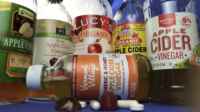
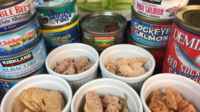
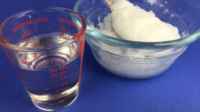
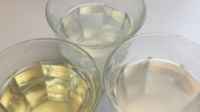
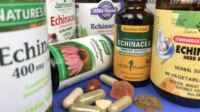
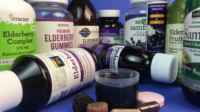
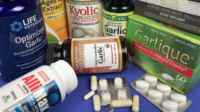
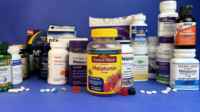
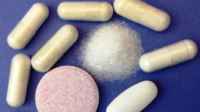

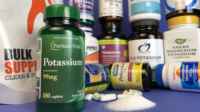

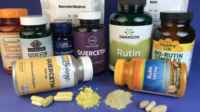
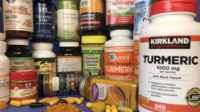
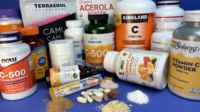
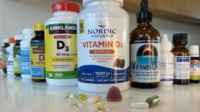
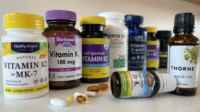
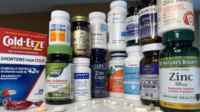





Submit your comment
This feature is restricted to active members.
Join now to add comments and get all member benefits, including over 1,400 reviews.
Join NowAlready a member? Sign in here.